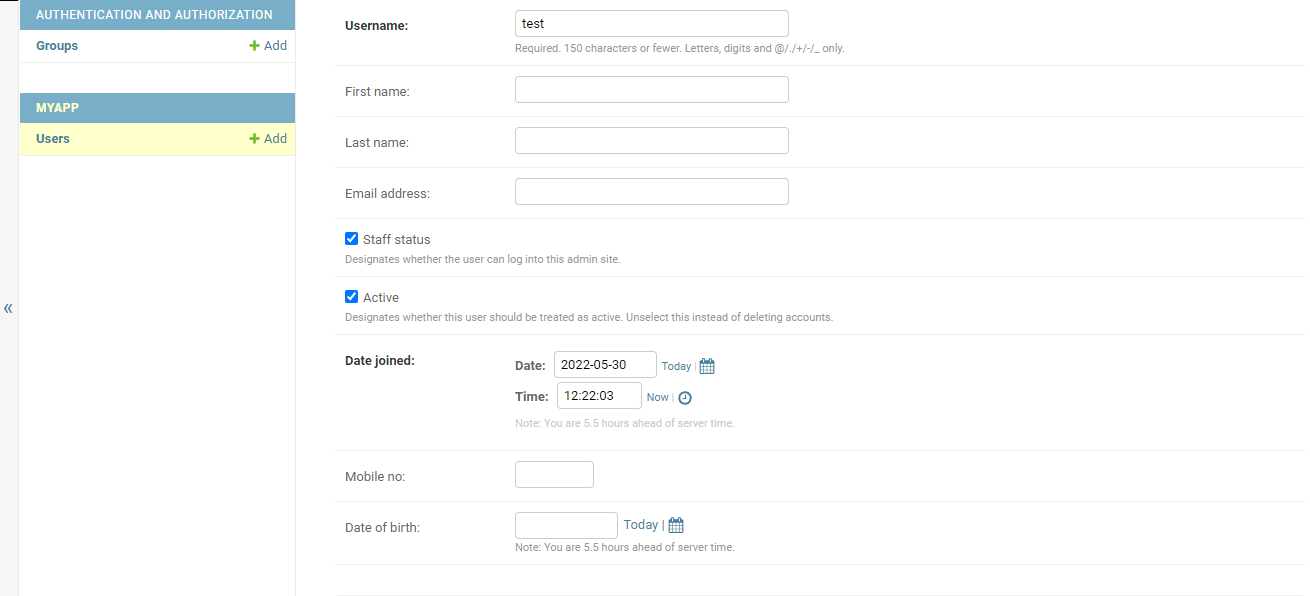Here I tried to explain how to extend Django's Default user model with extra fields
It's very simple just do it.
Django allows extending the default user model with AbstractUser
Note:- first create an extra field model which you want to add in user model then run the command python manage.py makemigrations and python manage.py migrate
first run ---> python manage.py makemigrations then
second run python manage.py migrate
Step:- create a model with extra fields which you want to add in Django default user model (in my case I created CustomUser
model.py
from django.db import models
from django.contrib.auth.models import AbstractUser
# Create your models here.
class CustomUser(AbstractUser):
mobile_no = models.IntegerField(blank=True,null=True)
date_of_birth = models.DateField(blank=True,null=True)
add in settings.py name of your model which you created in my case CustomUser is the user model. registred in setttings.py to make it the default user model,
#settings.py
AUTH_USER_MODEL = 'myapp.CustomUser'
finally registred CustomUser model in admin.py
#admin.py
@admin.register(CustomUser)
class CustomUserAdmin(admin.ModelAdmin):
list_display = ("username","first_name","last_name","email","date_of_birth", "mobile_no")
then run command python manage.py makemigrations
then python manage.py migrate
then python manage.py createsuperuser
now you can see your model Default User model extended with (mobile_no ,date_of_birth)
![enter image description here]()

